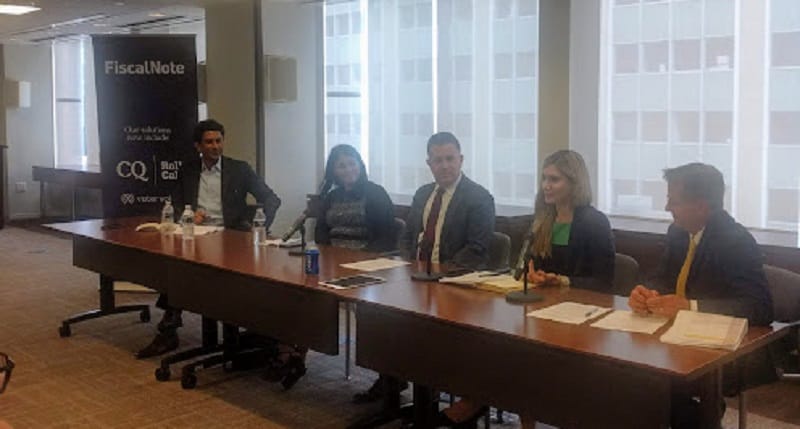Big Tech and Big Data Make Privacy Law An Important New Topic for Antitrust Enforcement
WASHINGTON, July 30, 2019 – Privacy legislation and antitrust action don’t normally get discussed together. Yet as big tech firms are increasingly under fire from competition authorities, privacy law becomes a potential tool against social media and search engine giants. At FiscalNote’s Privacy and

WASHINGTON, July 30, 2019 – Privacy legislation and antitrust action don’t normally get discussed together. Yet as big tech firms are increasingly under fire from competition authorities, privacy law becomes a potential tool against social media and search engine giants.
At FiscalNote’s Privacy and Antitrust luncheon on Thursday, two major privacy bills were on the table: the European Union General Data Protection Regulation and the California Consumer Privacy Act.
“Big data” must be addressed when discussing privacy concerns, said Gabrielle Kohlmeier, associate general counsel for antitrust and strategic affairs at Verizon.
Policymakers need to differentiate between business and consumer data to see if they require the same amount of regulation.
When policymakers receive data, their goal is to exceed expectations and enhance consumer protections, said David Eppstein, legislative counsel at the American Bar Association.
In the EU, thousands of GDPR violation complaints have been recorded so far. Reflecting on the GDPR’s drawbacks will be beneficial when improving privacy regulations in the U.S.
While U.S.-based companies have already been adhering to the EU’s GDPR rules for more than a year, the CCPA doesn’t takes effect until January 2020.
Then, however, it will likely become the “law of the land” all over the United States, said Jonathan Becker, shareholder at Greenberg Taurig.
The California legislation’s implementation date could serve as a trigger for Congress, which has been closely scrutinizing the impact GDPR has had, he said.
Significant cyber security weaknesses and lack of data security in U.S. agencies makes it harder to pass privacy legislation, said Jamie Danker, director of privacy at Easy Dynamics. Agencies and private companies also must grapple with the issue of how to define personally identifiable information.
Businesses need to look at privacy issues as a matter of consumer trust and choice, said Kohlmeier. If companies only follow the minimum compliance for privacy, they would negatively impact consumer trust and competition.
The U.S. has specific antitrust terms tied to a complex economic analysis of monopolies. “Being a big company in this country is not inherently bad,” she said. The problem is that some entities are looking to loosen antitrust and privacy restrictions.
Yet Becker advised against going after big data for political purposes, which often seems to be the case. Policymakers should acknowledge and understand that companies use aggregated data in different ways, he said.
(Photo of event by Masha Abarinova.)









Member discussion